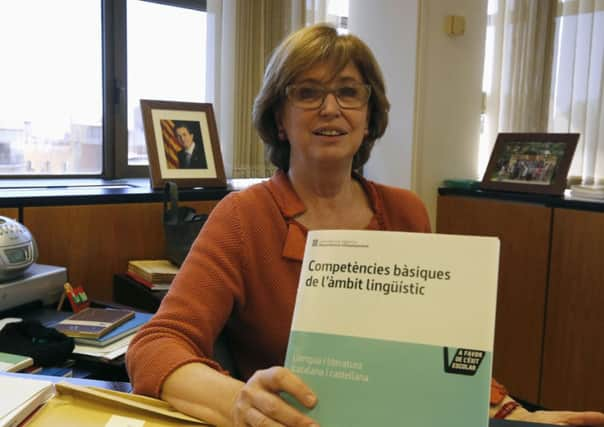Spanish parents unhappy with Catalan lessons


Francesca Munoz, the principal at Sant Miquel primary school near Barcelona, is fighting a linguistic crusade that has fuelled a remarkable recovery of the local Catalan tongue – and of the region’s secessionist movement.
There are now some 10 million Catalan speakers in or near the region bordering France and the Mediterranean, putting the language in a league with Swedish and Greek.
Advertisement
Hide AdAdvertisement
Hide AdIt was repressed for decades under the 1939-1975 dictatorship of Franco.
“We feel so proud to have achieved this, but we can’t relax now. It’s still a daily battle,” says Ms Munoz, who led her school’s transition to Catalan three decades ago, when all the teachers were retrained.
But such is the strength of the Catalan renaissance that it is prompting a backlash among some parents concerned their children are getting short-changed on Spanish.
These parents – worried that many schools now give only three hours of Spanish a week – have support from the centre-right government in Madrid, which passed an education law last year that will force the Catalan school system to provide more hours in Spanish if parents petition for it.
The nascent movement for more Spanish teaching has only hardened supporters of the Catalan language – and of the wealthy region’s independence drive.
Catalonia’s secessionist movement has gained momentum during Spain’s recent economic crisis as taxpayers in the wealthy region complained they were financing poorer areas of the country.
“We need our own country in order to protect our language,” said Irene Rigau, education superintendent for Catalonia.
Opinion polls show that half of Catalonia’s 7.6 million residents want independence, and regional leader Artur Mas wants to hold a plebiscite on secession in November, two months after Scotland votes on leaving the United Kingdom.
Advertisement
Hide AdAdvertisement
Hide AdBut the Catalonia vote is not likely to happen, because it is expected to be declared unconstitutional.
Franco imposed Spanish-only schooling across the country. The result was that in the 1970s, Catalan – a centuries-old Rom-ance language related to Spanish, French and Italian – was spoken mostly among family and friends.
But when Spain restored democracy in 1978, a new constitution gave Catalonia and other regions control. There has been an intense government campaign to promote product labels and signs in shops in Catalan, and public sector jobs demand Catalan proficiency.